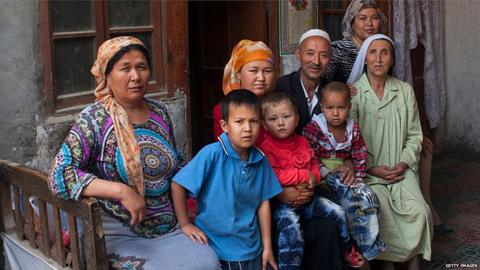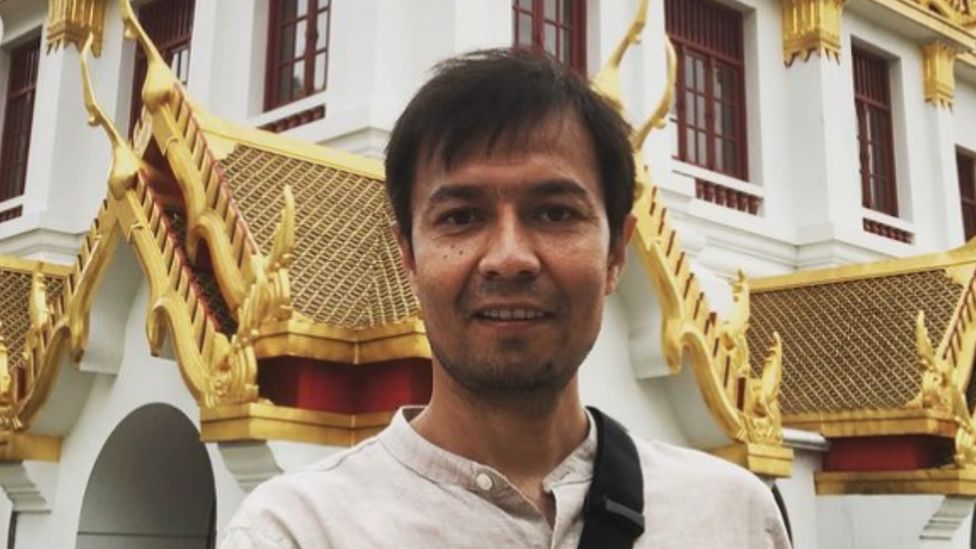
Rights group Amnesty International has corrected its report alleging an Uyghur student went missing from Hong Kong airport, saying he is “accounted for”.
“Abuduwaili Abudureheman… told us he did not travel to Hong Kong, contrary to previous information received,” the group’s correction read.
Mr Abuduwaili is safe in Seoul, his base for the last seven years, his university colleagues say.
The Hong Kong government is calling on Amnesty to “apologise”.
“We will continue to strive to offer support to people who reach out to us when they believe they or their loved ones are at risk,” Amnesty said in a correction added to its original report.
Amnesty had claimed on Friday that Mr Abuduwaili had boarded a flight from Seoul to Hong Kong on 10 May, before losing contact with family and friends.
His last correspondence, Amnesty said, was a text message to a friend claiming “he was being interrogated by Chinese police after arriving at Hong Kong airport”. The Hong Kong government refuted the allegations at the time.
On Monday, the dean at Seoul’s Kookmin University’s College of Physical Education – where Mr Abuduwaili is studying for a doctorate – contradicted Amnesty’s report in an interview with Yonhap News Agency.
Cho Wook-yeon said he had been in constant contact with Mr Abuduwaili, who had recently confirmed with Mr Cho that he was in Seoul.
“Abudureheman has not left Hong Kong and is staying in Korea safely,” he said, adding that he was “surprised” to see reports of the disappearance.
A director at the college repeated this account when contacted by the BBC.
The BBC contacted Mr Abuduwaili for a response, but the student has yet to reply.
Amnesty referred the BBC to its corrected statement when asked about the university staff’s statements. The rights organisation has yet to respond to follow-up questions on how it verified the initial claims about Mr Abuduwaili and his latest statement to Amnesty.
In response to Amnesty’s correction, the Hong Kong government said the organisation had “maliciously smeared” and “slandered” Hong Kong and China, and called for a “sincere apology (made) responsibly”.
Beijing has been accused of committing crimes against humanity and possible genocide against the Uyghur population and other mostly-Muslim ethnic groups in China’s north-western Xinjiang region, which are allegations the government strenuously denies.
There are about 12 million Uyghurs in Xinjiang, and the region is cloaked in a pervasive network of surveillance, including police, checkpoints, and cameras that scan everything from number plates to individual faces.
A landmark UN report released in 2022 accused China of “serious human rights violations” in Xinjiang that “may constitute international crimes, in particular crimes against humanity”.
It also urged China to release “all individuals arbitrarily deprived of their liberty”.
Beijing called the UN report a “farce” arranged by Western powers.
The US, UK and international human rights monitors have accused Beijing of detaining about one million Uyghurs in so-called “re-education camps”, separating children from their families and breaking their cultural traditions.
Additional reporting by Joel Guinto.
Related Topics
-
-
24 May 2022
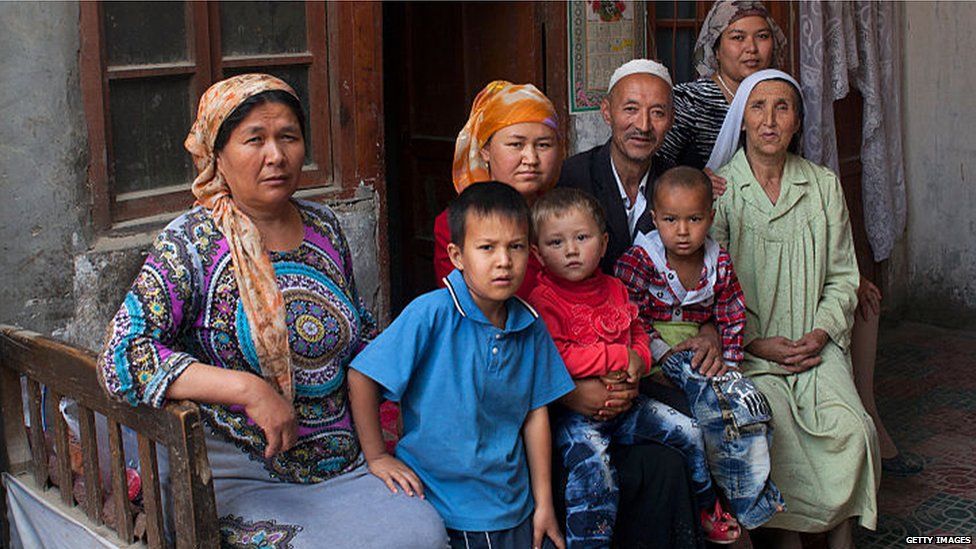
-
-
-
10 June 2021
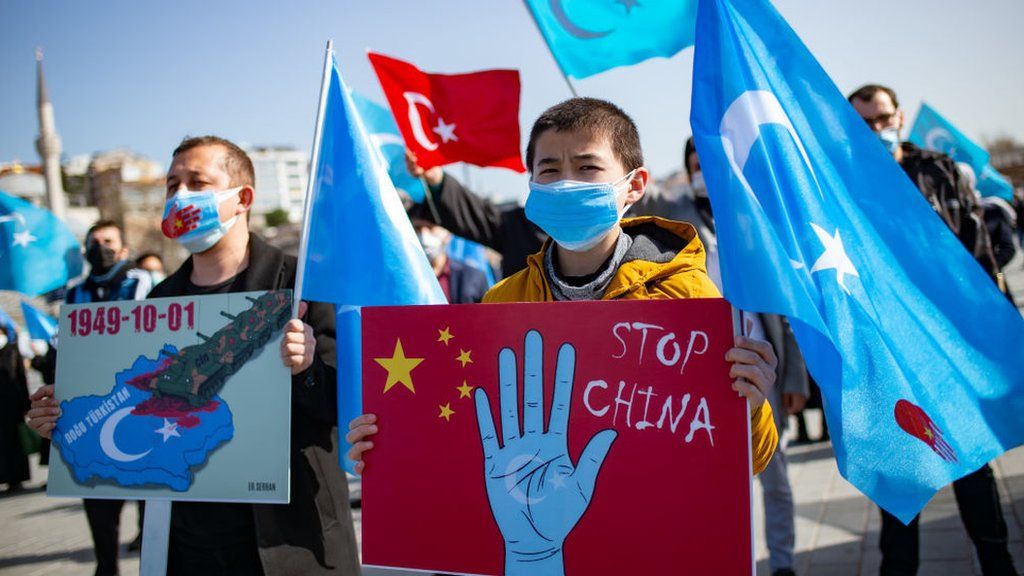
-
-
-
2 September 2022
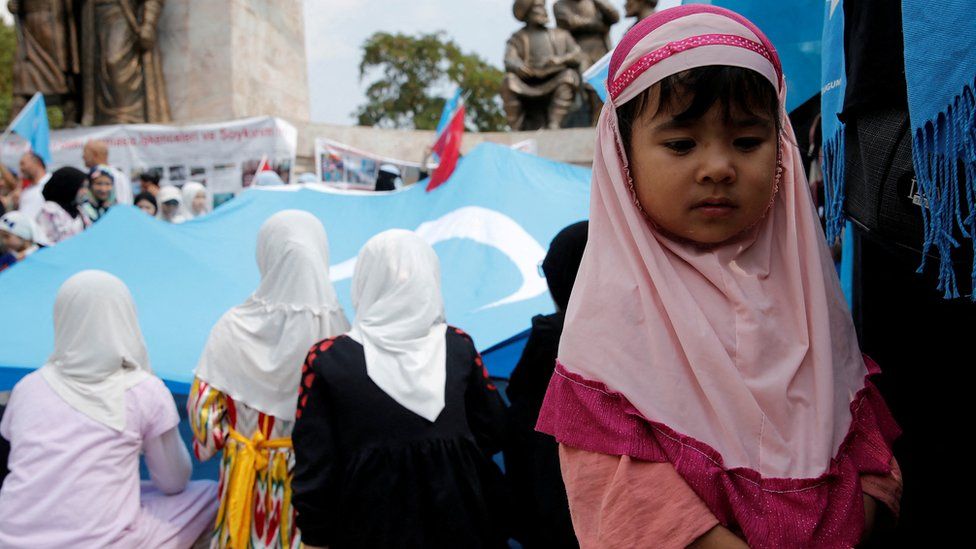
-

